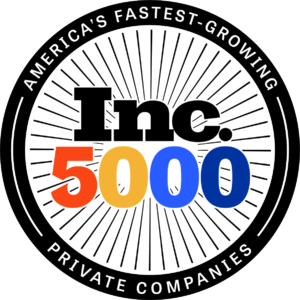How Much Market Power Do Small Businesses Have?
Some people believed that the advent of the COVID-19 pandemic was a great time to start a business. There are many advantages that business owners didn’t have before, including:
- Increased access to talent;
- A decrease in fixed costs;
- More consumers willing to try new products.
That’s not to say that owning a small business does not come with its challenges. There are many challenges that owners face, such as:
- Finding customers;
- Increasing brand awareness;
- Building an email list;
- Generating leads;
- Retaining customers;
- Hiring talented people;
- Managing workflow;
- Financial planning;
To overcome these challenges, small businesses must establish market power. This type of advantage helps businesses set prices, retain customers, and create a competitive advantage.
What Is Market Power?
Market power is a company’s ability to adjust prices in a marketplace. Companies with market power have few industry competitors, allowing them to set prices on their terms. By manipulating the prices, these companies can also control their profit margins and increase obstacles to potential new businesses. Some examples of companies that have market power are:
Businesses with market power can enjoy several advantages including:
- Brand recognition;
- Pricing power;
- Limited barriers;
- Decreased competition;
- More effective lead funnels.
Understanding Market Power
Market power measures how much hold a company has over a certain industry. There are also different types of market power:
- Perfect competition: This type of market structure has minimal to no barriers for new companies entering the market. Many sellers and buyers hold equal amounts of market power.
- Monopolistic competition: In this type of market, products differ slightly, increasing the demand for variable prices. Yet, this demand is elastic and must change with consumer needs.
- Monopoly: A monopoly is a single company that sells a distinct product. The company maintains the demand for this product and sets prices above market value to increase their profits.
More factors affect how much market power a company holds, including barriers to entry, imperfect information, and product differentiation.
Barriers to Entry
A business shows market power when it has little to no competition. “Barriers to entry” is a term that describes factors that prevent new businesses from entering a market or industry. There are different types of barriers new companies face:
- High start-up costs;
- High research and development costs;
- Economies of scale;
- Advertising;
- Pricing;
- Regulatory hurdles;
- Special tax benefits to existing firms;
- Customer loyalty;
- Brand identity.
There are also industry-specific barriers that businesses should be aware of. For instance, new electronic businesses may pay more to produce items than established companies; financial services must deal with compliance and licensure costs. By evaluating all barriers to entry, businesses can determine whether their market has potential or not.
Imperfect Information
A consumer’s access to product information is another sign of market power. Often, companies will increase the price of a product without increasing their cost. Other times, companies mislead consumers to believe that their product is higher in quality than it is. Both strategies could lead people to mistrust companies. To increase the amount of information a customer has access to, businesses should create and maintain client expectations. Consider the following tips to better manage client expectations:
- Establish clear and authentic communication;
- Keep clients up to date with deadlines and deliverables;
- Underpromise and over-deliver to ensure companies meet expectations;
- Be honest about snags in project timelines and adjust accordingly;
- Create progress reports to keep clients in the loop.
Managing client expectations can help businesses create customer loyalty and satisfaction. Both aspects will help improve businesses’ market power.
Product or Service Differentiation
Businesses that create unique products or which provide specialized services have more market power because their offerings are difficult to replace. If various businesses make similar products or provide identical services, consumers can switch from business to business. Additionally, small business owners can’t raise their prices for fear of losing customers to the competition. New businesses must create a product that is unique and irreplaceable, or find a way to deliver services that stand out and offer a compelling value proposition. Product and service differentiation helps companies raise prices and sets them apart from the competition.
How to Increase Market Share
To get a large amount of market power, a business must hold a percentage of sales or units in the market. This is called market share. The higher the market share, the higher advantage a company has over its competitors. To increase market share, small businesses should:
- Analyze the market to discover a competitive gap;
- Invest in lead generation to gain visibility and develop a customer base;
- Implement new technology to attract customers;
- Diversify products to meet customer demand;
- Create relationships with customers;
- Develop eco-friendly processes that resonate with customers;
- Improve existing customer relationships.
Additionally, businesses should invest in online marketing to reach larger audiences and stretch their marketing dollars.
How to Maintain Market Share
Maintaining market share requires businesses to attract and retain dedicated employees. Good workers help sell company values and decrease turnover and training expenses. Companies can help attract top talent by offering:
- Competitive salaries;
- Strong company culture;
- Growth opportunities;
- Valuable company benefits;
- Flexible work hours;
- Exceptional onboarding.
Businesses can also outsource professional responsibilities or highly specialized functions so they can focus efforts elsewhere. The benefits of outsourcing include:
- Low-cost contractors;
- Better efficiency;
- Dedicated specialists;
- Reduced risks;
- Increased competitive edge;
- Flexibility and scaling.
Another way to maintain market share is to acquire a competitor. This strategy helps companies obtain existing customer bases while reducing competition. Many businesses use this option when it is more costly to get new customers than a competitor.
Market power is an essential tool for new small businesses. By understanding market power and knowing the factors that affect it, newly created businesses can determine if they will be successful in a specific market.
Law firms who need to Find New Clients are facing a big problem.
Potential clients are searching online for an attorney, and it’s increasingly difficult for law firms to stand out in search results.
Here’s how Legal Leads help.
1) We use 20 years of online advertising expertise to make sure potential clients in your region can find your law firm. As they search for an attorney, we route them to you as a Legal Lead.
2) Legal Leads are EXCLUSIVE and delivered in REAL-TIME through the web or LIVE on the phone. This means you can respond to leads right in the moment they reach out for help. It’s the best time to win them as a new client.
You only pay when you receive a lead. You can stop at any time, and you have an excellent customer support team to help you succeed!
CREATE YOUR ACCOUNT at 4legalleads.com/lawyers. It only takes a moment. Then, we’ll be in touch to help you complete your setup so you can start finding new clients!





